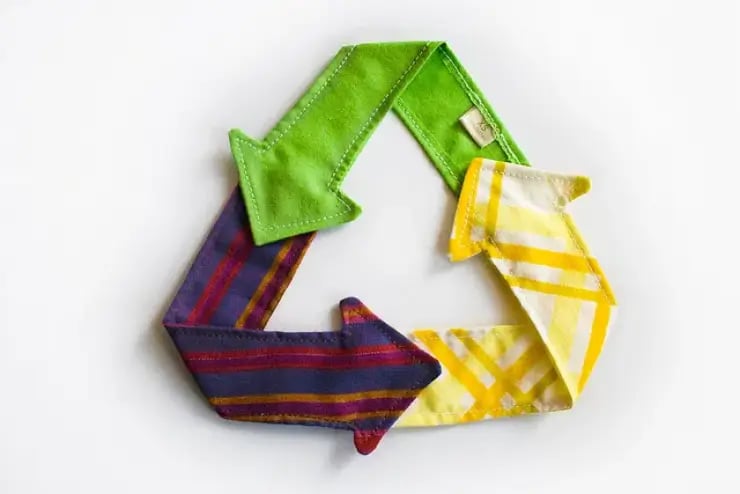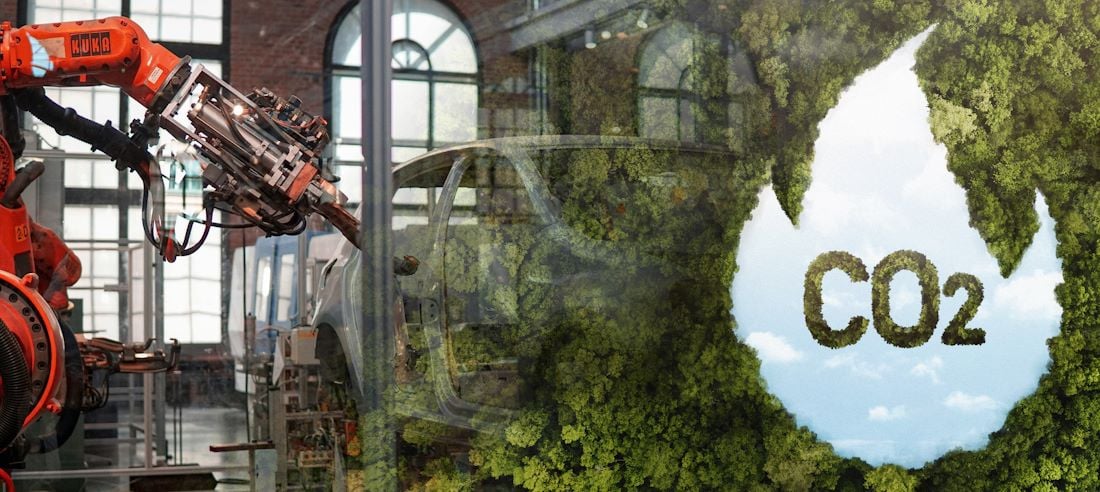The amount of manufacturing in Germany is vast. To guarantee survival in the global rotation of who is who among industrial nations, companies in Germany are forced to innovate. Every company that aims to stay competitive has to innovate? Yes, of course. But that goes even more so for the ones in well-established economies, than for their emerging competitors.
Since the nature of innovation is multifarious, making the choice of what measure to invest in is far from obvious. What’s clear, though: true innovations are those that not only save money, but also generate savings in resources – the more, the better. No one is more aware of this than the German Engineering Federation (VDMA), a network of 3,000 small to medium sized enterprises that also includes a few large companies. This makes the federation a big player and one that may be on the verge of supporting the transition to a green economy considering its part in the “Efficiency Factory” initiative. The Efficiency Factory (in German: Effizienzfabrik) showcases 31 projects from 200 project partners, uniting most branches of manufacturing. It was founded by the VDMA with the help of generous public funding through the Federal Ministry for Education and Research (BMBF) in the context of the latter’s research project, “resource efficiency in production”).
Why does this make sense? Because in order to take advantage of the maximum potential for innovation, nothing is more important than inspiration. Raising efficiency requires ideas, and there is basically no limit to innovation for achieving resource-efficient production. The Efficiency Factory not only focuses on innovation in the fields of production plant efficiency, product quality and research in functional surfaces, it also provides a framework for their scientific simulation and, finally, their scientific evaluation. Because science probably plays the biggest role when it comes to intellectual input, a renowned scientific institute was brought in to review all potential projects, the Fraunhofer Institute for Systems and Innovations Research.
The 31 Projects Showcase a Big Potential for Innovation
Since there are 31 projects from all kinds of industries featured by the Efficiency Factory, it is hard to pick a representative one. I strongly suggest that you flip through the efficiency navigator, an online tool that helps find a suitable project. It is only available in German, unfortunately, but works pretty well with Google Translate. Some of the project pages, however, do have links to PDFs in English. The efficiency navigator helps to get a relevant result with all kinds of search approaches: you can search by the kind of resource to be saved, by branch (construction, production, etc), by machine, by process or by instrument (energy management or simulation, for instance).
In an attempt to stimulate your appetite for innovation, let me briefly introduce five projects featured by the Efficiency Factory.
Water Filter Improvement for Longer Cleaning Intervals: Nanoefficiency
Filtering water on a micro-level is an exhausting affair. To get rid of bacteria that block filter pores (“fouling layers”), water treatment plants have traditionally made extensive use of chemical treatments. In order to reduce the use of chemicals and still prevent the filters from fouling, the Nanoefficiency project develops filter coatings made of photocatalytic titanium-oxide nano-particles to keep up the filtering power.
- www.effizienzfabrik.de/projekte/nanoefficiency (in German)
No More Water Baths in Textile Processing: ENTEX
Why does energy sometimes make up for a quarter of the cost of textile processing? Because textiles are traditionally soaked in certain chemical baths and have to be dried afterwards – an energy-intensive process. Instead, the corona technique developed in the ENTEX project does not require drying – the treatment is sprayed on the cloth directly. Other methods include water-saving minimal coatings and plasma coating techniques.
- www.effizienzfabrik.de/projekte/entex (in German)
Connecting Solar Thermal Tubes with Lasers: LaFueSol
Renewable energy is a lot more environmentally friendly than fossil or nuclear energy. However, it is far from being emission-free. When solar thermal collectors are made, for instance, the glass tubes are connected using inefficient gas flames. If you use a laser instead, you get a more precise result (with more constant loads on the tubes) plus time savings. Thus, an up to 72% reduction in energy use.
- www.effizienzfabrik.de/projekte/lafuesol (in German)
Direct Structuring of Copper on Flexible Printed Boards and RFIDs
Flexible Printed Boards (FPCs) and RFID-boards (Radio Frequency Identification) are traditionally fabricated in two steps. First, a whole layer of copper is laminated on the board. In the second step, the unnecessary parts then get etched off. Taking into consideration that this may be up to 80% of the layer, the method is highly inefficient. Saving material in the rapidly growing market of FPCs, RFIDs and bio sensors benefits the environment and lowers production costs by an especially noteworthy amount (and, not to forget, consumer prices as well). The new “direct structuring” method developed in the P3T project promises to do this. It aims at a thickness of 50 nanometers to 5 micrometers. Plasma printing, electro-plating and selective soldering processes are the keywords.
- www.effizienzfabrik.de/projekte/p3t (in German)
Integrative Consumption Data Management: EnHiPro
One particular project, called EnHiPro (in German: Energie- und Hilfsstoffaufwand in der Produktion), was already featured in the knowtheflow article 7 Measures for Efficient Climate Control on the Factory Floor. EnHiPro follows an integrative approach that shows how to improve efficiency not once, but, instead, continuously. The textile company featured in the article is only one example of how important the data framework is in order to improve efficiency in manufacturing. By measuring and visualizing material consumption during production with appropriate software, the assessment of alternative production techniques is easy. What companies have to bear in mind, though, is how consumption measurement is integrated into the company’s production landscape. Ask Tobias Viere from ifu Hamburg or one of the EnHiPro-engineers at Technical University Braunschweig for the best way – they are the efficiency data gods.
- www.effizienzfabrik.de/projekte/enhipro (in German)
- www.knowtheflow.com/2012/7-measures-for-efficient-climate-control-on-the-factory-floor
- www.enhipro.de (in German)
Hungry for inspiration? Find all 31 projects here, in the efficiency navigator. Because the site is in German, you might want to use this direct Google Translate link.
Article image CC BY ND by miltedflower.





